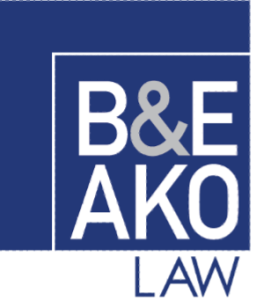According to the Insurance Act, actions of an agent in the insurance business binds the insurer. This is because an insurance agent sales insurance, collects premiums and issues insurance policies to customers under the direct instructions of an insurance company. This is not the case with insurance brokers.
An insurance broker is not an agent of an insurance company in terms of the law. His/her job is mainly limited to soliciting and bringing together the insurer and the customer (insured), for purposes of enabling them to complete an insurance agreement.
This general position is not absolute, though. There are situations in which transactions/conducts by an insurance broker may bind the insurer as well. In determining the relationship, courts do not only look at the law, but may go further to examine the business conduct of the parties.
In a recent decision of the Court of Appeal in the case of NIKO Insurance T. Limited vs Hussein Athuman Mwaifyusi & Another (Civil Appeal No.168 of 2017) [2021] TZCA 465, the Court of Appeal while confirming the position taken by the High Court of Tanzania (Commercial Division) in a case involving the same parties, the Court of Appeal ruled that actions/conducts of a broker may bind the insurer in case the broker.
Brief facts of the case.
A motor vehicle belonging to Hussein Mwaifyusi (insured person) was involved in a road accident. The insured person claimed to have had a comprehensive insurance policy issued by an insurance company (Appellant) through the second Respondent. As such, he claimed for reimbursement of costs incurred and damages. The Insurance Company denied the claim and validity of the policy, stating that it had not issued the alleged cover and that the second Respondent, being an insurance broker, was not its agent and had no authority to issue the alleged insurance cover and the premium collected was not remitted to it.
The trial Judge of the High Court having looked at the conducts of the Insurer and the broker ruled that, although the second Respondent was a broker, he acted more than a broker and that it was clear he had both ostensible and apparent authority from the Appellant to issue policies and collect premiums on the insurer’s behalf. On that basis the Appellant was bound by the conduct of the second Respondent. The Judge also rejected the claim that the insurance policy had lapsed due to the second Respondent’s failure to remit the collected premium to the Appellant. In that regard, judgement was entered in favour of the insured person.
Niko Insurance (T) Limited was aggrieved with the decision and preferred an appeal to the Court of Appeal.
In determining the appeal, the Court stated that, by collecting the premium, facilitating the conclusion of the contract, and delivering a duly signed policy to the first Respondent; the second Respondent effectively acted as the Appellant’s agent.
Since the Court had determined that the second Respondent was an agent of the Appellant and his actions bound the latter; it found the insurance company liable to compensate the insured person for acts committed by the broker.
Important Tips to Insurance Companies.
- Insurance companies must ensure that brokers are only left to conduct brokerage activities rather than extending to becoming insurance agents. As such, insurance transactions such as issuing insurance policies, cover notes or collection of premiums should not be allowed to be done by insurance brokers.
- Insurance companies should ensure that the terms of contract with Brokers are certain and clear on each party’s duties and obligations.
- Insurance companies should make sure that its Brokers conduct themselves within the ambit of law and terms of their contracts.
- Insurance companies should be aware that, in insurance disputes; the Court may look at the conduct of the parties, in determining their relationship rather than their titles.







